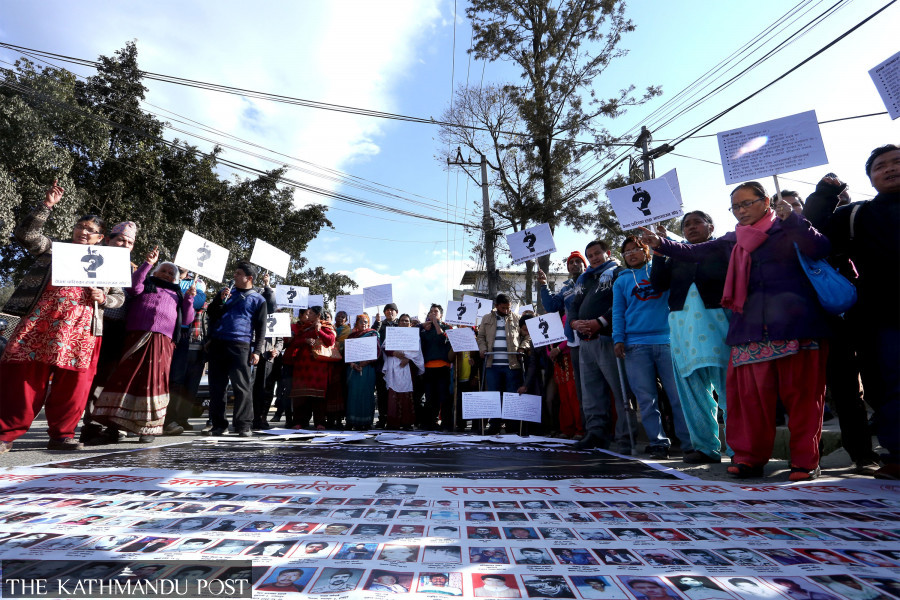Editorial
In search of justice
People who lost their loved ones during the Maoist conflict are still seeking closure.
For nearly two decades, people who lost their loved ones during the Maoist conflict have been running from pillar to post, doing everything possible within their means and beyond, to ensure some closure to the events that upended their lives. There have been severe human rights violations on both sides—the government and the insurgents. Innocent people were picked up for questioning, never to be seen again. And despite acknowledgement of this ugly chapter in the nation’s history, successive governments over time have done precious little to alleviate the miseries of those left fighting to ensure justice for the ones they have lost.
Every time a new minister for law and justice takes office, a commotion is created around what they intend to do, raising people’s hopes of achieving closure. And a similar situation unfolded when the Commission of Investigation on Enforced Disappeared Persons was constituted in 2015. Still, nothing concrete has been achieved in the seven years since the commission’s formation. The commission itself has been reduced to a body in charge of collecting complaints rather than dismantling the roadblocks in the transitional justice process and concluding it.
The commission’s ineptitude in tackling the issue stems primarily from the lacklustre approach of successive governments. As the adage goes, where there is a will, there is a way. And it is precisely that which is missing—lack of political will. The conclusion of the peace process saw the re-entry of the belligerent Maoists into mainstream politics. Over the years, former enemies are seen working in tandem, doing much without doing anything.
This is against the backdrop of continuous pressure exerted by the United Nations and international rights bodies on the Nepal government. And despite this, the plight of the people seems to have fallen on deaf ears. But with renewed consultation between the victims and the state, there is a sense of optimism in the air. People are pinning their hopes on Minister for Law and Justice Govinda Sharma Bandi who has recently attended consultations with the victims to create an environment of trust.
This is not the first time the government has held consultations, and this is not the first time it has promised to conclude the matter. But by passing a bill to amend the Enforced Disappearances Enquiry, Truth and Reconciliation Commission Act by mid-July, it could pave the way for a conducive environment which could effectively take the transitional justice process to its desired conclusion. There is nothing more treacherous than the government sidestepping a critical issue like this. Justice delayed is akin to justice denied—leaving open wounds will only cater to growing resentment in the country. We need a firm commitment from all stakeholders, but primarily from the political actors, to see it through. It cannot be allowed to linger on any further.



 9.7°C Kathmandu
9.7°C Kathmandu














